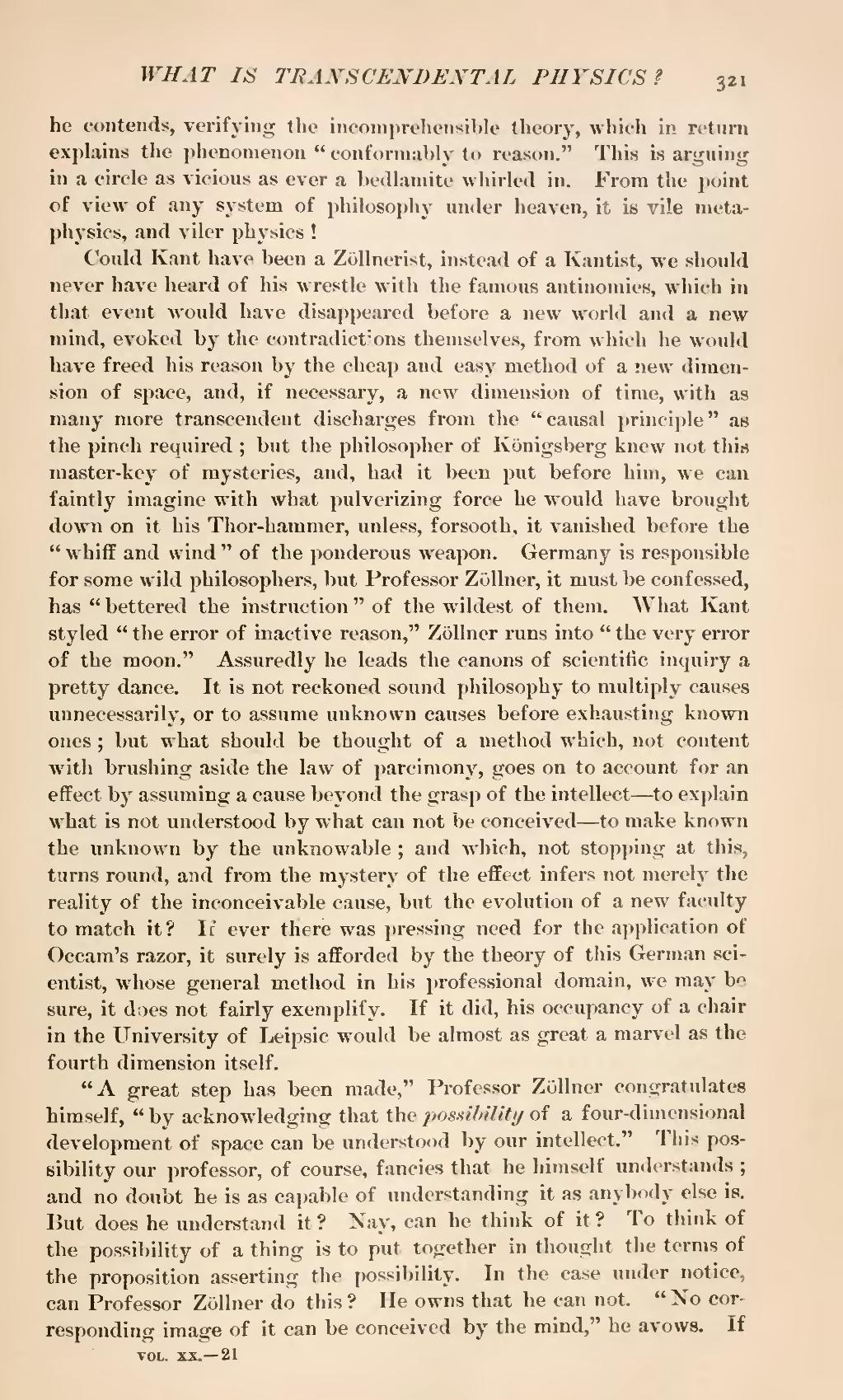he contends, verifying the incomprehensible theory, which in return explains the phenomenon "conformably to reason." This is arguing in a circle as vicious as ever a bedlamite whirled in. From the point of view of any system of philosophy under heaven, it is vile metaphysics, and viler physics!
Could Kant have been a Zöllnerist, instead of a Kantist, we should never have heard of his wrestle with the famous antinomies, which in that event would have disappeared before a new world and a new mind, evoked by the contradictions themselves, from which he would have freed his reason by the cheap and easy method of a new dimension of space, and, if necessary, a new dimension of time, with as many more transcendent discharges from the "causal principle" as the pinch required; but the philosopher of Königsberg knew not this master-key of mysteries, and, had it been put before him, we can faintly imagine with what pulverizing force he would have brought down on it his Thor-hammer, unless, forsooth, it vanished before the "whiff and wind" of the ponderous weapon. Germany is responsible for some wild philosophers, but Professor Zöllner, it must be confessed, has "bettered the instruction" of the wildest of them. What Kant styled "the error of inactive reason," Zöllner runs into "the very error of the moon." Assuredly he leads the canons of scientific inquiry a pretty dance. It is not reckoned sound philosophy to multiply causes unnecessarily, or to assume unknown causes before exhausting known ones; but what should be thought of a method which, not content with brushing aside the law of parcimony, goes on to account for an effect by assuming a cause beyond the grasp of the intellect—to explain what is not understood by what can not be conceived—to make known the unknown by the unknowable; and which, not stopping at this, turns round, and from the mystery of the effect infers not merely the reality of the inconceivable cause, but the evolution of a new faculty to match it? It ever there was pressing need for the application of Occam's razor, it surely is afforded by the theory of this German scientist, whose general method in his professional domain, we may be sure, it does not fairly exemplify. If it did, his occupancy of a chair in the University of Leipsic would be almost as great a marvel as the fourth dimension itself.
"A great step has been made," Professor Zöllner congratulates himself, "by acknowledging that the possibility of a four-dimensional development of space can be understood by our intellect." This possibility our professor, of course, fancies that he himself understands; and no doubt he is as capable of understanding it as anybody else is. But does he understand it? Nay, can he think of it? To think of the possibility of a thing is to put together in thought the terms of the proposition asserting the possibility. In the case under notice, can Professor Zöllner do this? He owns that he can not. "No corresponding image of it can be conceived by the mind," he avows. If
